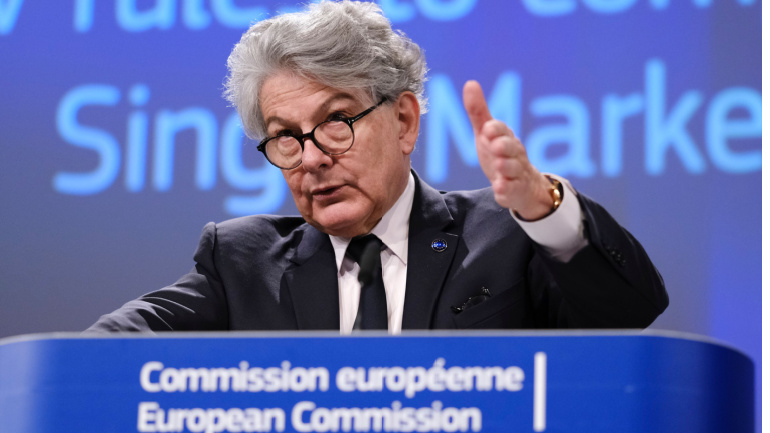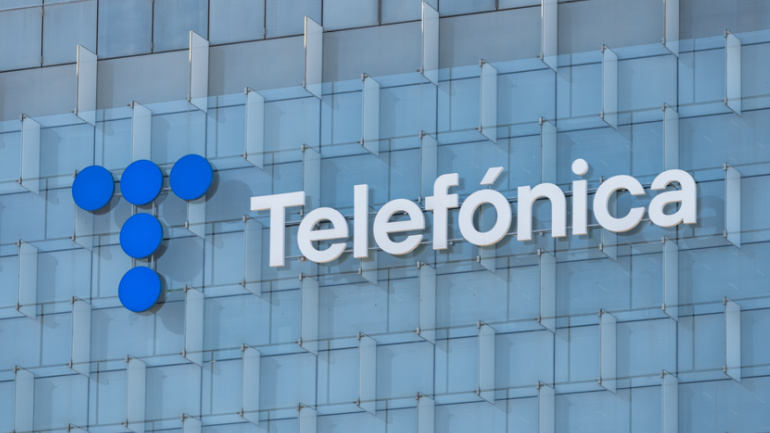VoIP readiness assessment is vital for cost-effective business communication. Define objectives, assess costs, scalability, integration, infrastructure, equipment, security, and training. Pilot testing and vendor selection are key. Develop a migration plan for a smooth transition, resulting in enhanced communication, productivity, and cost savings.
First Orion introduces SENTRY™, combatting fraudulent calls and preserving brand integrity. CO-OP KINKI enhances customer security with Vonage’s 2FA technology for online shopping. Cloud communications market soars, set to reach $180.7 billion by 2027. T-Mobile shifts users to pricier plans, raising concerns over rate plan commitments.
Thierry Breton, Internal Market commissioner of the European Commission, is advocating for a unified European telecoms market, anticipating advancements in growth, innovation, and swift adaptability to emerging technologies. Arguing against the current market fragmentation, he believes regulatory easing on issues like spectrum acquisition could invite investors to support future networks. Simultaneously, telecom operators suggest cross-border consolidation as a potential path when local financial conditions improve.
Taking leaps in autonomous network management, Telefónica skillfully navigates the complex landscape, developing standards and aligning with recognized organizations. With their Autonomous Network Journey program, they unravel the value of AI and machine learning at multiple levels. With successful solutions like Vivo Config, they’ve achieved substantial work savings and dramatically reduced network alarms and reworks, while actively focusing on energy efficiency and emissions reduction – invaluable attributes in the era of sustainability.
VoIP continues its growth trajectory, serving both businesses and individuals for internet-based calls and messaging. Predictions for the next decade include 5G integration, AI-driven enhancements, IoT synergy, and mobile VoIP expansion. VoIP adoption will increase globally, cybersecurity investments will rise, and it will be integral to customer-centric strategies. Ultimately, VoIP may replace PSTN, undergo infrastructure improvements, and remain promising with 5G and AI advancements.
Deutsche Telekom and Mavenir are making strides in 5G network slicing technology. A “5G Live Video Production Service” now allows reliable HD video streaming over 5G, even via smartphones. They’ve also demonstrated a proof-of-concept for on-demand 5G network slicing services, streamlining customization and quality assurance. These innovations offer agility, efficiency, and new revenue prospects.
Spanish telecom titan Telefónica is allegedly exploring a potential divestment from its successful subsidiary, Telefónica Tech. With a speculated valuation over €2 billion, Tech has made impressive strides in sectors like cybersecurity and IoT. However, despite robust revenue growth, the benefits of Tech to Telefónica’s overall operations remain ambiguous. Will Telefónica cash in, or continue cultivating this promising asset? Insights may be revealed in the CEO’s upcoming strategy announcement. Stay informed as we delve deeper into this intriguing possibility.
Google’s Pixel 8 promises a remarkable seven years of updates, outdoing Samsung. The Pixel 8 Pro boasts advanced computational photography and an FDA-approved body temperature sensor. Microsoft introduces a faster, sleeker Teams app with AI-powered Copilot. Truecaller strengthens fraud detection with Unoideo Technologies acquisition. Snom Americas collaborates with Zoom to enhance the reseller channel with the Snom M500 DECT phone system, offering wireless mobility and crystal-clear audio.
Nepal’s move into 5G has hit a deadlock due to geopolitical tensions, resulting in halted trials. Interestingly, at the heart of the issue is the importation of necessary equipment from Chinese firms amid corruption allegations and international contentions over security. The telecom industry in Nepal fears this impasse may set back tech enhancements, revealing global tensions’ significant impact on local infrastructures.
Luxembourg’s Prime Minister and SK Telecom have inked an agreement, initiating a strategic collaboration to advance the quantum tech ecosystem. Connexion between this MoU and an earlier South Korean – Luxembourg agreement hints towards a momentous ‘quantum Internet of Things’. Meanwhile, telecom operators globally look to leverage quantum technology’s disruptive potential towards traditional data security protocols. SK Telecom, recognized for its pioneering quantum work, also boosts its pursuit in the AI realm, underlined by a significant investment in AI firms.













